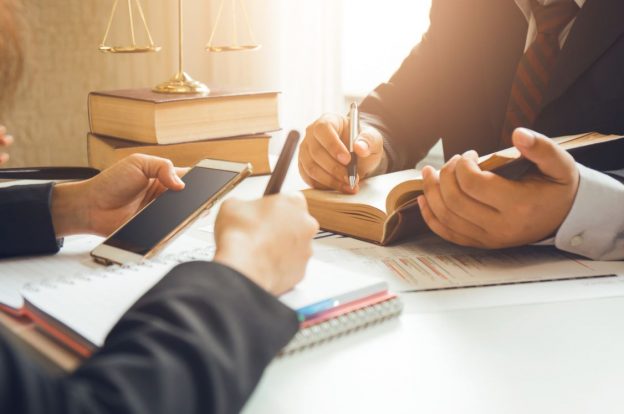Navigating family law issues like divorce, child custody battles, or domestic violence can be overwhelming, especially when finances are tight. If you’re wondering, “Can I get a family lawyer for free?” the answer is often yes—through pro bono services, legal aid programs, and self-help resources designed for low-income individuals. In this article, we’ll break down your options, eligibility, and steps to access free or low-cost help, so you can protect your rights without breaking the bank.
What Is a Family Lawyer and When Do You Need One?
A family lawyer specializes in legal matters involving family relationships, such as marriage dissolution, parenting plans, spousal support, and adoption. These cases are deeply personal and can impact your future, making expert guidance crucial.
You might need a family lawyer if you’re facing:
- Divorce or separation: To ensure fair asset division and support agreements.
- Child custody or visitation disputes: To prioritize your child’s best interests.
- Domestic violence: For protective orders and safety planning.
- Guardianship or adoption: To navigate complex family formations.
Hiring a private attorney can cost thousands, but free family law services exist to level the playing field for those who qualify.
Yes, Free Legal Help Is Possible: Types of Pro Bono and Legal Aid Services
The good news? Numerous programs offer free family lawyer assistance through volunteer attorneys and nonprofit organizations. These services focus on civil family law, not criminal cases, and are funded by sources like the Legal Services Corporation (LSC), a nonprofit established by Congress in 1974 to support low-income Americans.
Pro Bono Services: Volunteer Lawyers Stepping Up
Pro bono (Latin for “for the public good”) means lawyers donate their time for free. Many bar associations run matching programs connecting you with volunteers experienced in family law. For instance, the American Bar Association’s online pro bono platform pairs low-income clients with attorneys for quick advice on issues like custody.
Local pro bono directories, such as those from state bars, list opportunities for divorce and child support cases. In Nevada, for example, the State Bar connects eligible residents with free services for family matters.
Legal Aid Organizations: Comprehensive Support for Low-Income Families
Legal aid nonprofits provide full representation, advice, and clinics tailored to family law. Organizations like LawHelp.org offer free guides, document creators for custody forms, and referrals across the U.S. In California, the State Bar funds groups like Bay Area Legal Aid, which handles eviction-related family issues and domestic violence for low-income clients.
Other examples include:
- Legal Aid Chicago: Free civil services in Cook County for poverty-level residents dealing with family disputes.
- Colorado Legal Services: Assistance for qualifying low-income Coloradans on non-criminal family cases.
- Legal Aid of NorthWest Texas: Free advice and representation for family law in North and West Texas.
These groups often prioritize urgent needs like child custody or protective orders.
Eligibility Requirements for Free Family Law Services
Not everyone qualifies for a free family lawyer, but the bar is lower than you might think. Most programs target:
- Income limits: Typically 125-200% of the federal poverty level (e.g., about $18,000-$36,000 for a single person in 2025).
- U.S. residency: Many serve citizens and legal residents.
- Case type: Focus on civil family issues; priority for domestic violence survivors or families with children.
Check eligibility via income calculators on sites like USAGov or LawHelp.org. Even if you don’t fully qualify, sliding-scale fees might apply.
How to Find and Apply for Free Legal Assistance
Getting started is straightforward—start online or locally.
Online Resources: Quick Access from Anywhere
Use national hubs like:
- LawHelp.org: Search by state for family law tools and local aid.
- USAGov Legal Aid Finder: Matches you with pro bono or low-cost options near you.
- LSC’s “I Need Legal Help” tool: Connects to 130+ funded programs.
Fill out simple forms to get matched or download self-help packets.
Local Court Self-Help Centers: In-Person Guidance
Most U.S. courts have free self-help programs. In California, superior courts offer info on divorce without a lawyer. Maryland’s Family Court Help Centers provide walk-in advice from staff or paralegals. San Francisco’s resources include clinics for low-income folks facing custody issues.
Call your local courthouse or visit their website to schedule.
What to Expect from Free Legal Services
Free doesn’t mean subpar—volunteer lawyers are licensed professionals. You might get:
- Brief consultations (30-60 minutes).
- Full case representation if selected.
- Self-representation tools to file forms yourself.
Be prepared to share documents and attend meetings. Wait times vary, so apply early. If denied, ask for referrals to low-cost alternatives.
Alternatives if Free Services Aren’t Available
If pro bono spots are full:
- Unbundled legal services: Pay for specific tasks, like form review, at reduced rates.
- Law school clinics: Free help from supervised students.
- Sliding-scale attorneys: Fees based on income.
Explore community resources for emotional support during family crises.
FAQs
Can I get a free lawyer for a divorce?
Yes, if you meet income guidelines. Legal aid groups like those on LawHelp.org often cover uncontested divorces for low-income clients.
How do I qualify for pro bono family law help?
Typically, you need to be low-income and have a civil family case. Use eligibility screeners on USAGov or state bar sites.
Are there free child custody lawyers?
Absolutely—many legal aid programs prioritize custody for parents in need, especially involving domestic violence.
What if I live outside the U.S.?
This guide focuses on U.S. resources, but check your country’s legal aid equivalents, like community law centers in the UK or Australia.
How long does it take to get free legal help?
It varies: Online advice can be same-day, while full representation might take weeks. Apply ASAP.
Facing a family law challenge? Don’t go it alone—reach out today for the support you deserve. For personalized advice, contact a local legal aid office.
